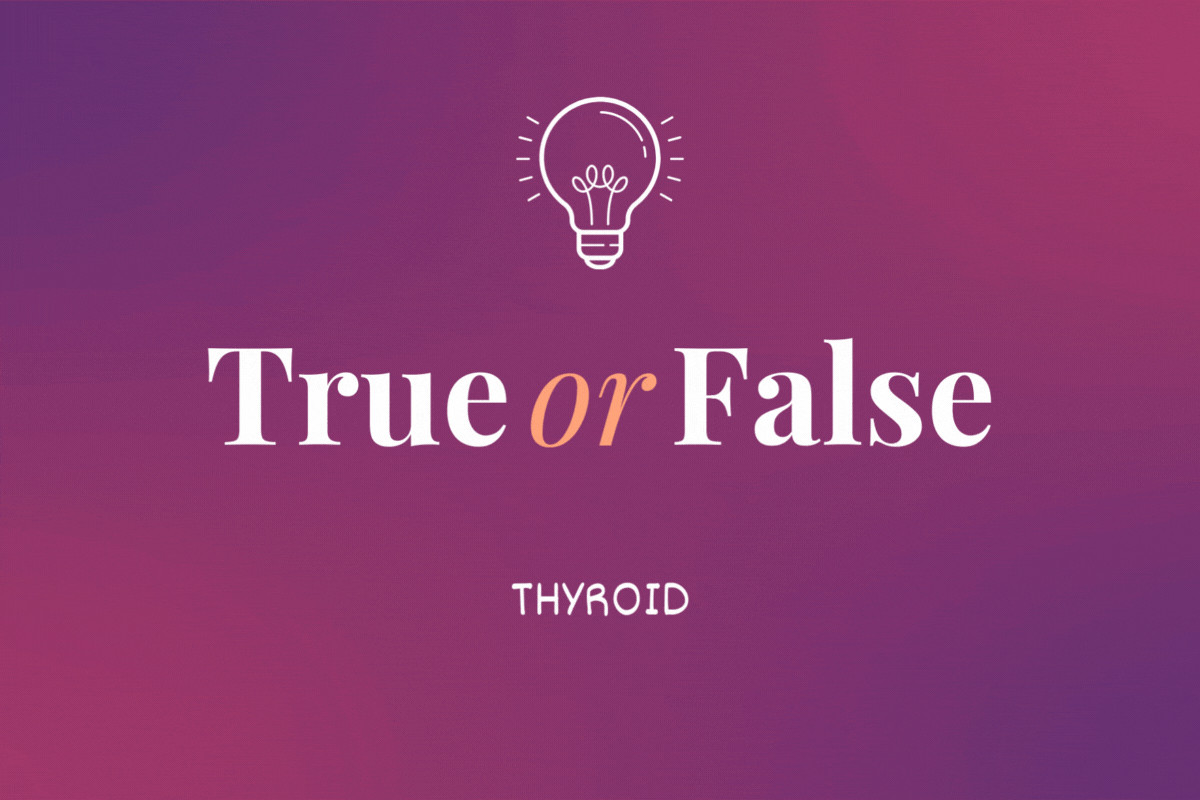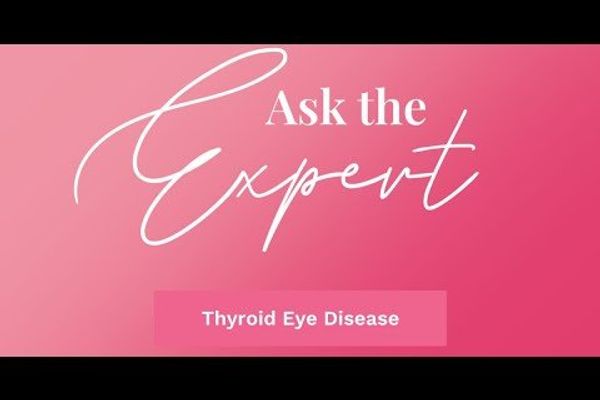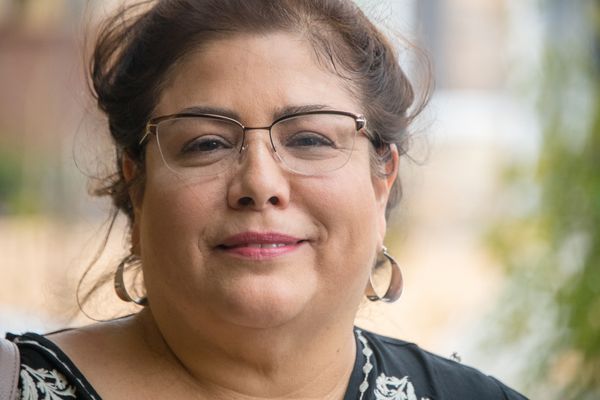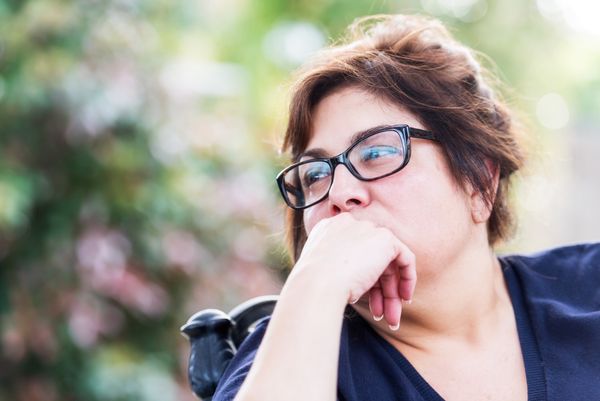By Mary Klemenok
As an athlete for over twenty years, I've always had a good idea of what being "strong" felt like, so I thought. However, when it came to me taking control of a hypothyroidism diagnosis, I started to learn more about myself and just how strong I really was.
I never knew there would be a "before" and "after" to my life. I was young, active, energetic, stress free—the "before" and it wasn't until I started developing unbearable symptoms that I was diagnosed with hypothyroidism—the "after" or as I call it, my new normal.
It has been four years since I was diagnosed with hypothyroidism—a disorder affecting the amount of thyroid hormone my body is able to make. Your thyroid is basically the "Holy Grail" as it controls the way your body uses energy, and without it functioning optimally, it can affect nearly every organ in your body. This may cause you to feel exhausted, depressed and experience weight gain for no apparent reason. It can wreak havoc on your relationships—especially with food, your self-esteem, the way you are able to manage stress and most importantly, your overall quality of life.
The Calm Before the Storm:
Before I began experiencing thyroid symptoms that really interfered with my life, I was always incredibly busy, active and rarely stressed. I had almost qualified for the Boston Marathon, had no problems with losing weight, rarely suffered from fatigue and brain fog, and prided myself in having my life pretty much in order. This was my "normal" up until my freshman year of college when things took a turn.
That year was one of the hardest times of my life. It was a time when I started to view the world and myself through a different lens—one that I wasn't used to. Living away from home and experiencing life on my own was exciting, but it didn't take away from the stress back home and the unrealistic expectations I began to place on myself. Watching my parents file for divorce that year was when I first started to see my life go in the complete opposite direction I always envisioned it to go. I started to view my body differently, beating myself up for everything I was not, and in turn, started to build an unhealthy relationship with food, which is something I never had a problem with. All of the internal and external stress eventually caused me to lose a substantial amount of weight in a short amount of time. There I was, at 80 pounds, not knowing this was just the beginning of a long journey ahead.
Fast forward to a few months later when I was living back home to focus on my health. I was running marathons and finally viewing food as fuel rather than the enemy. To me, running became the best therapy I could have asked for and it alleviated so much of my stress, or so I thought. You see, stress comes in all different forms, whether it's emotional, physical or traumatic. I experienced all three within a single year by dealing with my parents' divorce, packing up our home of sixteen years, losing our four dogs within ten months, being underweight and the list just kept going. However, working out is a physical stress on the body (a good type), but too much of it can wreak havoc on your immune system, cause you to gain weight and will make you more likely to suffer from overuse injuries. The one thing I turned toward as my escape from everything else was making my body feel worse.
In October 2014, after two years of overtraining, I suffered from my third overuse injury. I shattered my proximal tibial and could barely walk on my left leg for over a month. However, I didn't let that stop me from ignoring my doctor's advice and working out soon after. I was back in the gym attempting to train for my next race not understanding that my body was under so much stress already. An injury that could have taken two months to heal ended up taking almost four.
The Truth:
A few months later, in February, I started to feel like something wasn't right. I would wake up every morning looking like I had black eyes, my hair was falling out, sleeping fourteen hours still had me exhausted and I couldn't catch my breath just walking a few feet. After rounds of blood tests, my doctor gave me a call and said, "You have one of the worst cases of Epstein Barr Virus I've seen in my practice." In my head, I thought it wasn't that serious and that I would simply just power through like every other "cold." However, this one was a different beast that led me back to the doctor's office on a monthly basis.
Usually people with Epstein Barr (mononucleosis) lose weight, because you crave nothing but sleep, similar to the flu. My story is a little different. I actually gained weight because my body was under so much physical stress from the lingering injury and Epstein Barr. It began to shut down—I lost my menstrual cycle, had unbearable fatigue that lasted months, kept losing my hair and noticed I wasn't able to manage stress as well as I used to. The fatigue started to take over my life for the months following the virus, and trying to figure out the cause and feeling defeated for so long, I decided to see an endocrinologist to dig deeper into my situation. Within a few days following routine blood work, he finally sat me down and said, "You have hypothyroidism."
I've always wondered how I got to that point and where I went wrong. I've been a lifelong athlete and have always felt like I've done everything right, except one thing—listening to my body when it needs to slow down. I never understood the importance of being okay with taking a step back. It wasn't until I got diagnosed with hypothyroidism that I finally accepted I had to make significant life changes if I truly wanted to take control of my life.
I decided I needed a tribe of doctors who would listen to me and treat the issue, not just the symptoms. I began to cut out toxicity from my life—this included certain foods, environmental triggers and even more importantly, relationships with people that were dragging me down. I cut back on caffeine and traded in my early morning work outs to sleep just a little longer. I knew if I were going to conquer this disorder, I needed to start right away.
The Next Battle:
Four years later, as much as I want to sit here and say I finally feel normal and have it under control, the truth is, I don't. I still have a handful of days where I feel how I did when I was first diagnosed, and I'm constantly reminded that this isn't something that can be healed overnight—it takes a lot of time, effort and patience. Just recently, I was diagnosed with PCOS (polycystic ovary syndrome). I found myself experiencing so many of the symptoms I suffered from four years ago, but on a new level. PCOS is a hormonal condition that greatly affects your menstrual cycle and can also affect your ability to have a child. When I was diagnosed, I didn't know anything about this disorder and I sat in the doctor's office in disbelief, once again. The only thing I knew was that it wasn't the end of anything for me—it was the beginning to another journey of healing the right way.
How Stress Impacts Health:
People, especially women, tend to underestimate stress and the truth is, it's extremely hard to get away from. As women, we feel the need to be everywhere at once and often put everyone else before ourselves, which ultimately drives us more into the ground. The crazy thing is, stress can be the culprit of so many issues without even knowing it. For me, one of the biggest things I stress about is how much my body has changed and grieving over who I was before I was diagnosed with these two hormonal disorders. One thing I know is that as frustrating as it is to always feel like you're fighting something, it has opened my eyes to some of the most important areas of stress management for women's health:
- Weight isn't the be all-end all.Your weight is such a small part of who you are, and it doesn't dictate your self-worth or value. When you take the focus off your flaws and body, you'll truly begin to enjoy life without worrying about what others may think of you. You only get one body, so always treat it with love.
- Accept the things you cannot change.The longer you carry baggage, the heavier it feels. Sometimes life throws us curve balls that we aren't always prepared to deal with. Instead of dwelling on difficulties, try to focus on what you can learn from them and how it will make you stronger in the long run.
- Break a sweat, but don't overdo it.Working out has always been an outlet for me and it has gotten me through some of the most challenging times. Breaking a sweat helps pump out endorphins, which are your brain's feel-good neurotransmitters. Just remember, if you're feeling super stressed, working out can sometimes have an adverse effect, so always listen to your body.
- Count your blessings, not your problems.No one wants to end their day on a bad note. Through the good and bad times, you have to remind yourself of what you're grateful for each day. So, before bed, journal five things you're grateful for, no matter how small. This will help you calm down before hitting the sheets and will allow you to end your day with a positive outlook.
- Practice mindfulness and meditation.A majority of people overthink in challenging times. By practicing mindfulness and meditation, you'll become aware of your thoughts and emotions, which will help you react more positively in stressful or negative situations. Even just taking five minutes to focus on your breath is a great way to help ease the mind. By practicing meditation, I've seen a significant improvement in my sleep since my mind has useful techniques that help rest anxious thoughts.
Bringing her Southern roots to the city streets, Mary currently resides in New York City where she works as an Assistant Account Executive at GCI Health. When she isn't helping her team launch the next big campaign, she enjoys spending her time competing in CrossFit and eating her way through the city. Feel free to reach out to Mary on her Instagram at @hailmaryyy for questions related to health, fitness or even just to chat.







